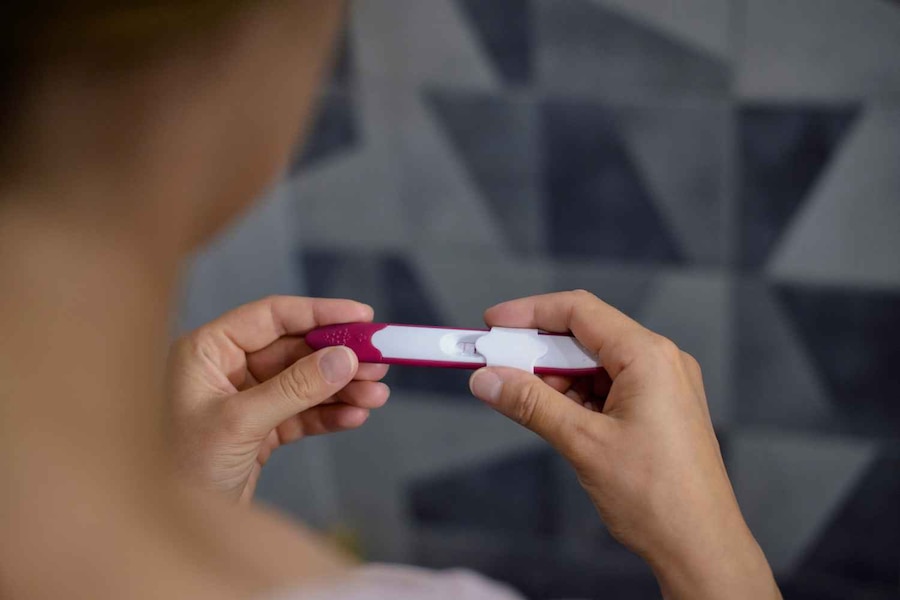How is fertility affected by PCOS?

Polycystic Ovary Syndrome (PCOS) is a very common condition that affects 1 in 10 women of reproductive age.[1] But will it affect your ability to get pregnant? To prevent you from panicking unnecessarily, we’ve gathered all the information you need to know.
Polycystic Ovary Syndrome (or PCOS for short) can sound like an intimidating medical term, but the more you learn about it, the easier it will be to understand and the less scary it seems. So what actually is it? PCOS is a condition that occurs when your ovaries are filled with a large number of harmless fluid-filled sacs called follicles. Eggs usually develop inside these follicle sacs, however, PCOS stops the sacs from releasing an egg, meaning ovulation cannot take place. [2]
Just managing and dealing with PCOS every day can be difficult, so it’s understandable how on top of that, wondering about how it might affect your fertility could leave you feeling even more frustrated and anxious. Read on to find out more about PCOS and fertility as well as the support that you can get.
Getting pregnant with PCOS
PCOS is most common during your reproductive years, so it’s usual for a lot of people to wonder about its potential to affect their chances of getting pregnant. Of course, not everyone may want to get pregnant and that choice is totally up to you, but if you are considering it, fertility worries may start to take a toll.
How can PCOS affect your fertility?
Given that ovulation occurs on an unpredictable and less frequent basis for those who have PCOS, it can make it harder for you to get pregnant. This is because ovulation is the process where your ovaries release a mature egg that’s ready to be fertilised by sperm. Therefore, if there is no egg to be fertilised, it is not possible to get pregnant.
However, this does not mean that just because you have PCOS that you won’t be able to get pregnant – yes it may be a bit harder, but by no means does PCOS automatically mean that you won't be able to conceive.
PCOS fertility treatments
While there is no one-stop cure for PCOS in general, there are fertility treatments and medication that can be prescribed by your doctor which help stimulate ovulation – giving you a much better chance of getting pregnant. For example in a recent medical study, it was found that 80% of women with PCOS who were given a specific fertility medication, managed to successfully ovulate. [3]
So if you are trying to get pregnant, get in touch with your doctor or a fertility specialist to find out what your options are. It’s also been reported that healthy eating and exercise, (which is a great regime to follow regardless of if you have PCOS or not!), can also help encourage more regular ovulation. [4]
Talking about PCOS and fertility
Fertility in general isn’t an easy topic to chat about and when paired with a condition such as PCOS, you may be left feeling even more disheartened and distressed – especially if you can’t seem to escape the endless pregnancy announcements clogging up your newsfeed.
When dealing with these types of issues, it’s important to try not to blame ourselves or let feelings overwhelm us. Instead, it’s often more helpful to take a proactive approach by reaching out to medical professionals to look at what your options are. And even if you don’t want to get pregnant immediately, it may help put your mind at ease for the future.
It’s also important that if you are feeling lonely or even just a little down, that you have someone that you can chat with; be it a close friend, cousin, parent, partner or doctor. As long as you can talk things through with someone you trust, they’ll be able to provide you with the right support and care during what may be a tricky time.
Ultimately, the best we can do is start a conversation around delicate issues including fertility, in order to help us become more informed and bring people together who may have been worrying in silence. For more information on fertility and period related problems, head over to our helpful pages about irregular periods and how fertility is affected by endometriosis.
Медицинская оговорка
The medical information in this article is provided as an information resource only, and is not to be used or relied on for any diagnostic or treatment purposes. Please consult your doctor for guidance about a specific medical condition.
[References]
[1] https://www.womenshealth.gov/a-z-topics/polycystic-ovary-syndrome
[2] https://www.hopkinsmedicine.org/health/conditions-and-diseases/polycystic-ovary-syndrome-pcos
[3] Frankfurter D. (2015) Getting Pregnant with PCOS. In: Davies T. (eds) A Case-Based Guide to Clinical Endocrinology. Springer, New York, NY.
[4] https://theconversation.com/i-have-pcos-and-i-want-to-have-a-baby-what-do-i-need-to-know-109800


